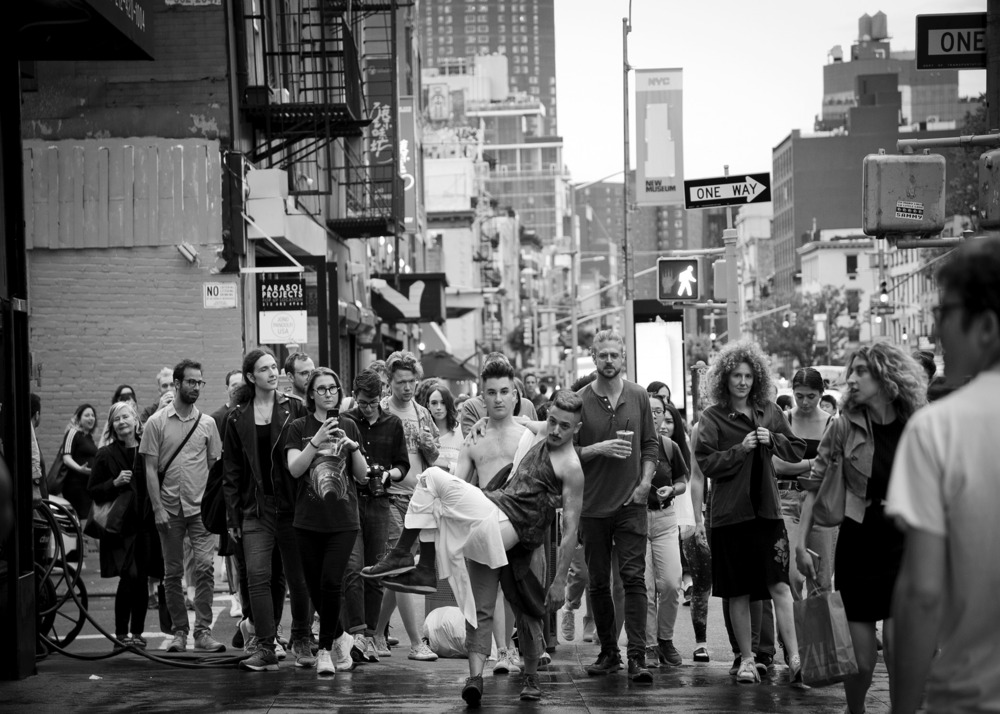
PASSAGE
first performed on June 15, 2019
Stellar Projects Gallery, New York, NY
performed once in 2019
JOSEPH LIATELA
John Macejka
New York, NY
840823051j840823051o840823051s840823051e840823051p840823051h840823051l840823051i840823051a840823051t840823051e840823051l840823051a840823051@840823051g840823051m840823051a840823051i840823051l840823051.840823051c840823051o840823051m
josephliatela.com
PASSAGE
JOSEPH LIATELA
Inspired by Simone Forti’s “Huddle” (1961) and Bruce Nauman’s “Walking in an Exaggerated Manner Around the Perimeter of a Square” (1968), “Passage” explores notions of political exhaustion / endurance, community support networks, intimacy between similarly coded bodies in public space, as well as how the queer and / or racialized body transiting the horizontal plane disrupts Western, straight notions of linear time. In this work, my collaborator and I take turns lifting and carrying one another around the parameter of a city block, pausing to perform gestures of intimacy and care.
As a transgender performance artist, I see the limitations of embodiment, projection, and visibility as sites rife with potential, and the body as both a type of object and projection surface endowed with meaning from historical, cultural, and institutional processes of identification. The transitional and sedimentary nature of the histories assumed by and impressed upon the othered body behave differently depending on both its social and physical positioning. In this performance, I was interested in how the horizontal body, the falling body, and the body that is lifted back up to resume its verticality (to inevitably fall again) is employed as a signifier of multiple, contradictory meanings such as exhaustion, rest, defeat, birth, death, sex, endurance. The slippery and transitional nature of horizontality opens up these potentialities, tearing a hole in the Western construct of chronological, linear time through the citational body enacting multiple life cycles, histories, life-times, and forms of categorization.
In “Passage,” the act of collapsing, being lifted up, and eventually falling again may read most immediately as a performative act of endurance or resistance for marginalized communities, which it is. However, I’d like to extend outward from this idea, adding how this act of repeated falling and resurrection of the queer and / or racialized body also disrupts Western and straight notions of linear time. This repetitive performing of the falling body challenges the straight chronological narrative of rise to fall, life to death, and the very notion of a body only containing one life cycle within it. To rise and fall and get back up again is to embody many life cycles, dimensions, and modes. I view the performative act of falling and rising up to keep moving in “Passage” as demonstrating a shifting of modes from human, to object (the corpse), to human again, or perhaps to resurrected ghost.